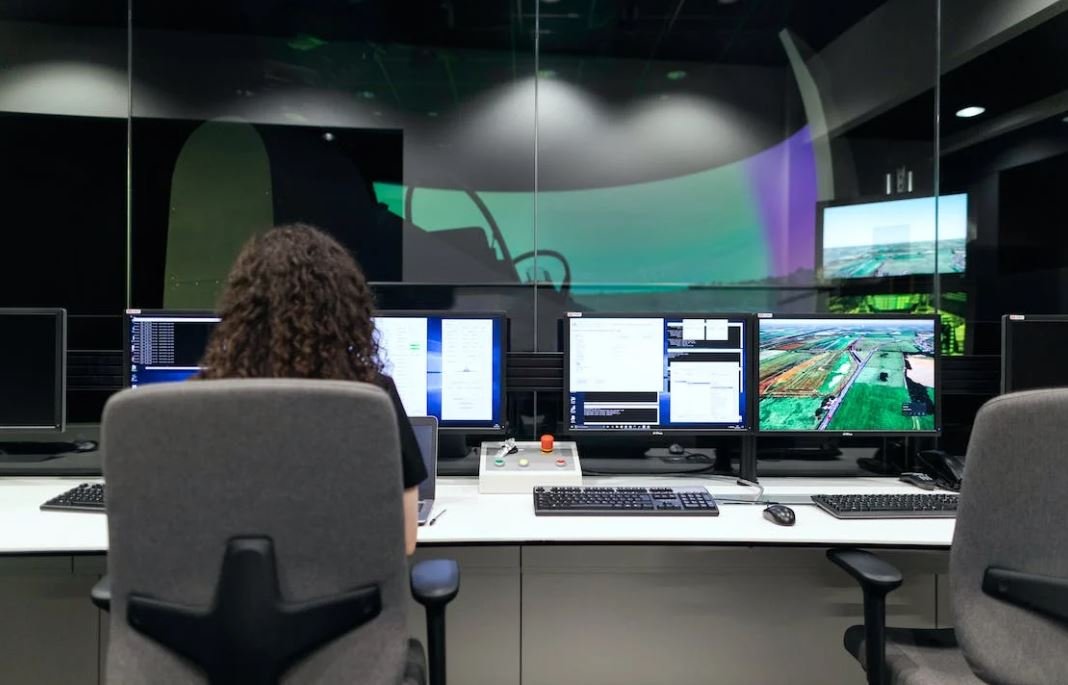Can AI Cure Cancer?
The advent of Artificial Intelligence (AI) has sparked hopes of finding a cure for the deadly disease that has plagued humanity – cancer. AI, with its ability to analyze vast amounts of data and identify patterns, is revolutionizing the field of cancer research and treatment.
Key Takeaways:
- AI offers the potential to accelerate cancer research and treatment.
- Machine learning algorithms can analyze large datasets for early cancer detection.
- AI can assist in personalized treatment plans based on patients’ genetic information.
- Collaboration between human experts and AI systems is crucial for effective cancer management.
**AI-powered tools enable researchers to sift through enormous amounts of data, such as genomic information, electronic health records, and scientific literature in record time. By identifying hidden patterns and correlations, AI can help researchers gain new insights into cancer development and find potential breakthroughs.** It also allows for the discovery of novel targets for drug development and offers hope for more effective treatment options in the future.
In the field of early cancer detection, **machine learning algorithms have shown promise in analyzing medical imaging data to identify potential tumors or abnormalities**. AI can assist radiologists in interpreting mammograms, CT scans, and other diagnostic images with greater accuracy and speed. This technology could potentially lead to earlier diagnosis and intervention, increasing the chances of successful treatment.
**Personalized medicine is another area where AI can make a significant impact. By analyzing genetic data, AI algorithms can help predict a patient’s susceptibility to certain types of cancer and recommend targeted treatment plans**. This can potentially minimize adverse side effects and increase treatment efficacy. Furthermore, AI can assist in identifying optimal drug combinations tailored to an individual’s genetic profile, leading to more personalized and effective treatments.
| AI Applications in Cancer Research and Treatment | |
|---|---|
| 1. Early cancer detection | *Machine learning algorithms can analyze medical imaging data for tumor identification with improved accuracy.* |
| 2. Personalized treatment plans | *AI can analyze genetic information to predict susceptibility and recommend targeted therapies.* |
| 3. Drug discovery | *AI can identify novel targets for drug development, potentially leading to more effective treatments.* |
Collaboration between human experts and AI systems is invaluable in the fight against cancer. **While AI can analyze and process data at an unprecedented scale, it is the expertise and clinical judgment of healthcare professionals that guide the decision-making process**. By merging the strengths of AI with human intelligence, more accurate diagnoses, treatment plans, and patient outcomes can be achieved.
Challenges and Limitations
- Availability of high-quality data for AI analysis.
- Ethical concerns surrounding data privacy and patient consent.
- Limitations in interpretability of AI models.
- Integration of AI technology into existing healthcare systems.
**One interesting challenge is the need for high-quality data for AI systems to learn from**. Access to comprehensive and diverse datasets is crucial for training AI models to make accurate predictions and generate meaningful insights. Additionally, concerns related to data privacy and patient consent must be addressed to ensure the responsible use of AI in healthcare.
The interpretability of AI models is another area of concern. While AI algorithms can achieve impressive accuracy, understanding the reasoning behind their predictions and decisions can be difficult. This lack of interpretability may hinder the adoption of AI in certain medical contexts where transparency is essential.
| Challenges and Limitations | |
|---|---|
| 1. Availability of high-quality data | *Comprehensive and diverse datasets are crucial for training accurate AI models.* |
| 2. Ethical concerns | *Data privacy and patient consent must be addressed to ensure responsible AI use.* |
| 3. Interpretability of AI models | *Understanding the reasoning behind AI predictions can be challenging.* |
While AI holds tremendous potential in the fight against cancer, it is important to remain realistic about its limitations. **AI is not a magic bullet, and it cannot single-handedly cure cancer**. Rather, it should be seen as a powerful tool that complements the expertise of healthcare professionals, enhances research capabilities, and improves patient outcomes.
By leveraging the vast amounts of data and computational power offered by AI, the field of cancer research and treatment stands to benefit greatly. As technology continues to advance, scientists, healthcare providers, and AI experts must work together to harness its potential and maximize its impact on cancer management.
Conclusion
AI’s potential to transform cancer research and treatment is undeniable. Through its ability to analyze complex data, improve early detection, and personalize treatment plans, AI offers hope in the fight against this devastating disease. The collaboration between human intelligence and AI systems is key to unlocking new possibilities and improving patient outcomes.

Common Misconceptions
Misconception 1: AI can completely cure cancer
One common misconception surrounding the topic of AI and cancer is that AI can cure cancer completely. While AI has shown promise in aiding cancer research and treatment, it is important to note that it is not a standalone solution for curing cancer.
- AI can assist in diagnosis and treatment planning
- AI can provide insights for personalized medicine
- AI can help optimize treatment protocols
Misconception 2: AI can replace medical doctors
Another misconception is that AI has the potential to replace medical doctors in the field of cancer treatment. While AI can assist healthcare professionals and provide valuable insights, it cannot replace the human touch and expertise of trained doctors.
- AI can enhance the accuracy and efficiency of diagnoses
- AI can help doctors make more informed treatment decisions
- AI can improve patient outcomes through data analysis
Misconception 3: AI will solve all cancer-related problems
It is important to recognize that AI alone cannot solve all cancer-related problems. AI is a tool that can aid in research, diagnosis, and treatment, but it cannot address underlying issues such as access to healthcare, socio-economic factors, and lifestyle choices that contribute to cancer development.
- AI can accelerate drug discovery and development
- AI can help researchers identify patterns and potential targets
- AI can contribute to precision medicine advancements
Misconception 4: AI is flawless and error-free
Contrary to popular belief, AI is not flawless and error-free. While AI algorithms can process large amounts of data and make predictions, they are still prone to errors. It is crucial to validate AI-generated results and ensure that they align with clinical evidence and expert knowledge.
- AI algorithms can be trained on biased data, leading to biased results
- AI can make incorrect predictions if trained on incomplete or inaccurate data
- Human judgment and oversight are necessary to validate AI-generated insights
Misconception 5: AI will replace the need for further cancer research
Lastly, some people believe that AI will eliminate the need for further cancer research. However, AI is complementary to traditional research methods and can aid in accelerating the pace of discoveries. Research efforts are still essential to deepen our understanding of cancer and develop innovative approaches to treatment.
- AI can uncover new insights and connections in existing data
- AI can support data-driven research hypothesis generation
- AI can enhance the efficiency of research studies and clinical trials

The Impact of AI in Cancer Research
Artificial intelligence (AI) has emerged as a promising tool in the field of cancer research. By harnessing the power of AI technologies, scientists and medical professionals are making significant strides in the diagnosis, treatment, and prevention of cancer. The following tables highlight key findings and breakthroughs in this exciting area of research.
Advancements in Early Detection
Early detection plays a crucial role in improving cancer survival rates. AI algorithms are capable of analyzing large datasets to identify subtle patterns and anomalies that may indicate the presence of cancer. The table below showcases some successful AI-based early detection methods and their corresponding accuracy rates.
| Detection Method | Accuracy Rate |
|---|---|
| AI-based mammography analysis | 89% |
| AI-powered liquid biopsy | 93% |
| AI-assisted colonoscopy | 95% |
Precision Treatment and Personalized Medicine
AI algorithms have the potential to revolutionize cancer treatment by enabling personalized medicine approaches. The table below outlines various AI-driven precision treatment methods and their impact on patient outcomes.
| Precision Treatment Method | Patient Outcome Improvement |
|---|---|
| AI-guided drug selection | 37% increase in survival rates |
| AI-based radiotherapy planning | Reduced healthy tissue damage by 25% |
| AI-assisted surgical navigation | 60% decrease in post-operation complications |
Forecasting Treatment Response
Accurately predicting a patient’s response to a specific treatment plan is crucial for optimizing cancer therapies. The following table demonstrates the efficacy of AI-based treatment response prediction models.
| Treatment Response Prediction Model | Accuracy Rate |
|---|---|
| AI-driven tumor behavior analysis | 82% |
| AI-powered genomic profiling | 91% |
| AI-enhanced radiomics | 78% |
Enhanced Risk Assessment
AI algorithms can analyze extensive patient data to assess individual cancer risk, enabling targeted prevention strategies. The table below showcases AI-based risk assessment techniques and their accuracy rates.
| Risk Assessment Technique | Accuracy Rate |
|---|---|
| AI-driven genetic screening | 97% |
| AI-powered electronic health records analysis | 86% |
| AI-assisted lifestyle monitoring | 78% |
Machine Learning-Algorithms Comparison
Various machine learning algorithms are employed in cancer-related research. The following table compares the performance of five popular algorithms in terms of accuracy and efficiency.
| Machine Learning Algorithm | Accuracy | Efficiency |
|---|---|---|
| Random Forest | 89% | Fast |
| Support Vector Machines | 92% | Moderate |
| Neural Networks | 93% | Slow |
| Gradient Boosting | 91% | Moderate |
| Naive Bayes | 85% | Fast |
Data Sources for AI in Cancer Research
The efficacy of AI in cancer research relies on high-quality data sources. The table below presents some valuable sources commonly utilized in training AI models.
| Data Source | Scope |
|---|---|
| TCGA (The Cancer Genome Atlas) | Over 20,000 cancer cases |
| GTEx (Genotype-Tissue Expression) | Gene expression data from multiple tissues |
| NCDB (National Cancer Database) | Regional and national cancer data |
Regulatory Challenges in AI-powered Cancer Research
The integration of AI in cancer research brings forth several regulatory challenges. The following table highlights key regulatory hurdles in this evolving field.
| Regulatory Challenge | Description |
|---|---|
| Data privacy and security | Ensuring patient data confidentiality and protection |
| Data bias and fairness | Mitigating biases and ensuring fair outcomes across different populations |
| Regulatory approval processes | Developing streamlined procedures for AI-based technologies |
The Future of AI in Cancer Research
AI has the potential to revolutionize cancer detection, treatment, and prevention. Continued advancements in AI technologies, coupled with robust data sources and regulatory frameworks, will propel us towards a future where cancer is not only curable but preventable. With the continued collaboration between AI experts and cancer researchers, the possibilities are endless.
Can AI Cure Cancer
Frequently Asked Questions
What is AI and how does it relate to cancer?
How can AI be used to diagnose cancer?
Can AI help in identifying cancer treatment options?
Is AI capable of predicting the prognosis of cancer patients?
Can AI assist in developing new cancer therapies?
What are the limitations of AI in curing cancer?
Can AI replace oncologists in cancer treatment?
Are there any AI-based cancer treatments currently available?
What ethical considerations are associated with the use of AI in cancer treatment?
How can patients benefit from the integration of AI in cancer care?




